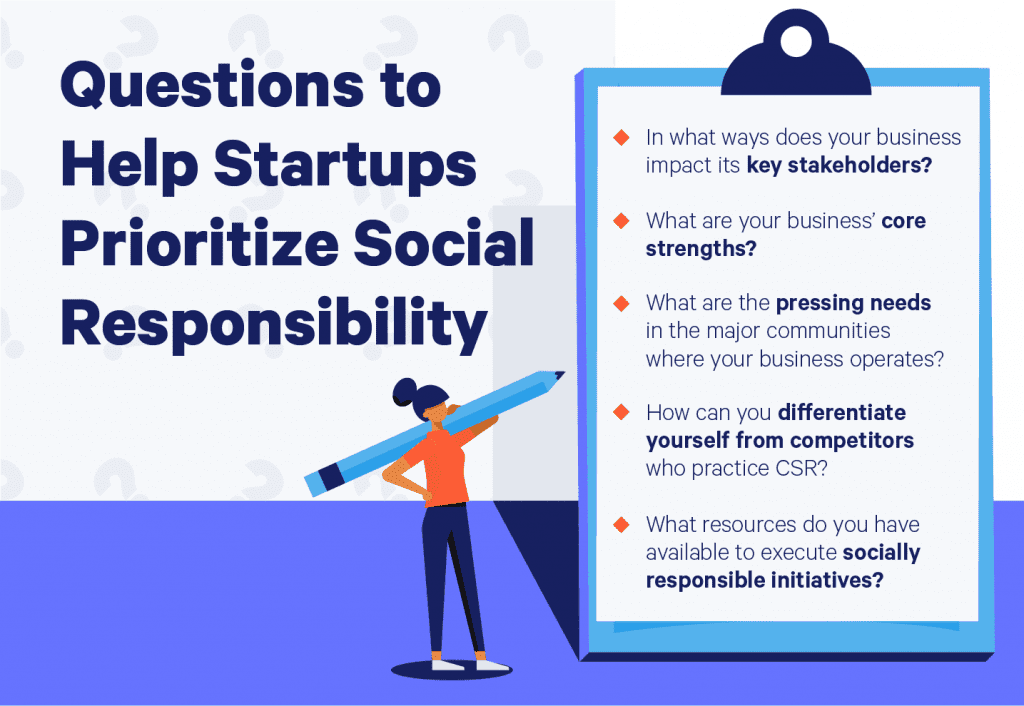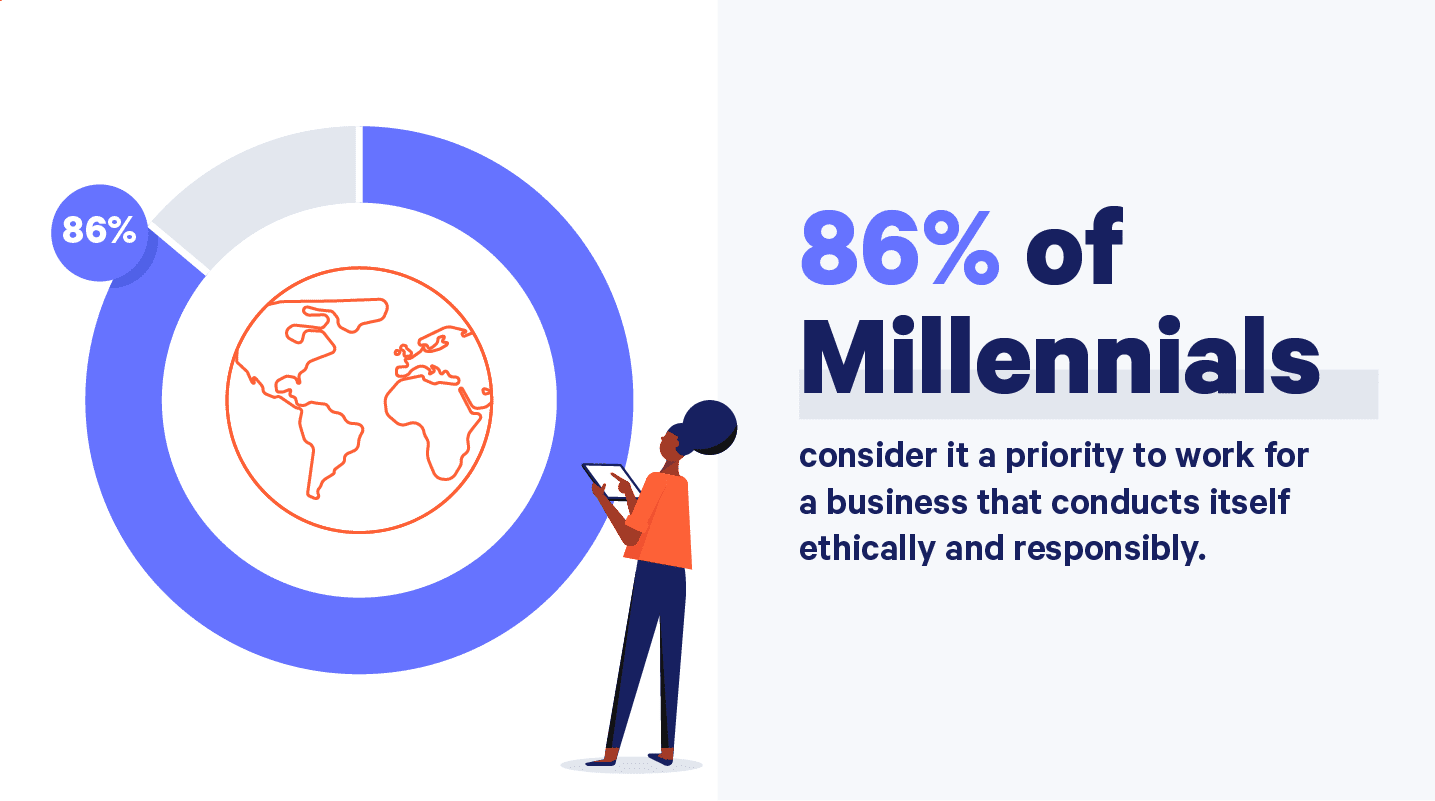If your startup isn’t ethically aligned, there’s a good chance you’re going to have a tough time recruiting.
As a startup founder, you already have a lot on your mind: how to grow your business, acquire funding, build a company culture…the list goes on. So naturally, incorporating social responsibility can seem like a luxury of large corporations — after all they have the budgets for this.
This is where you’re wrong. Social responsibility isn’t just a prerogative of big name businesses, in fact it’s something that needs to be woven into the fabric of a company from the get-go. Now more than ever, how your business conducts itself, ethically speaking, can change the trajectory of success. Ethical duty aside, here’s a big reason why you should consider CSR at the startup stage:
It’s a key component of recruiting top talent.
Millennials are now the largest generation in the U.S. labor force and roughly 86% of this cohort consider it a priority to work for a business that conducts itself ethically and responsibly — most going as far to turn down jobs or take a pay cut to work for such a business. If your startup isn’t ethically aligned, there’s a good chance you’re going to have a tough time recruiting.
When to Prioritize
You might be on board with startup CSR, but learning how to adopt practices and when to prioritize them is another challenge. Even startups that have access to the right assets can find the prioritization of social responsibility a challenge.
To do so, start by asking yourself and your co-founders the following questions:

- In what way does your business impact its key stakeholders? — e.g. your employees, the environment, the local community, society, customers, and suppliers?
- What are your business’ core strengths and how can you lean on them in the process?
- How can you stand apart from other startups with socially responsible initiatives?
- What are the pressing needs of your immediate community and how can your company help?
- What resources (think manpower, products, funding) are available to execute socially responsible strategies?
To learn more about how to implement socially responsible initiatives when you’re just getting off the ground, Embroker created this comprehensive business ethics guide that walks you through best practices and examples.


Join the conversation!